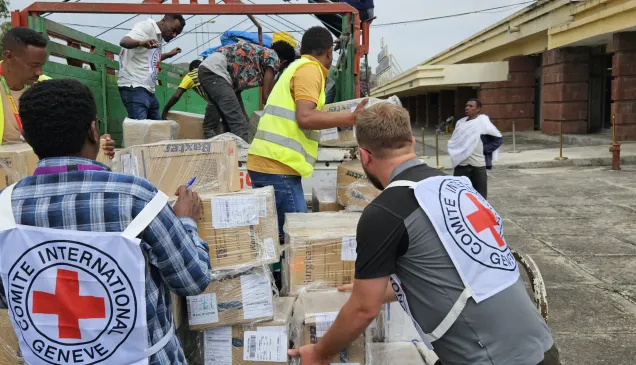Communities celebrate clean water in Ethiopia
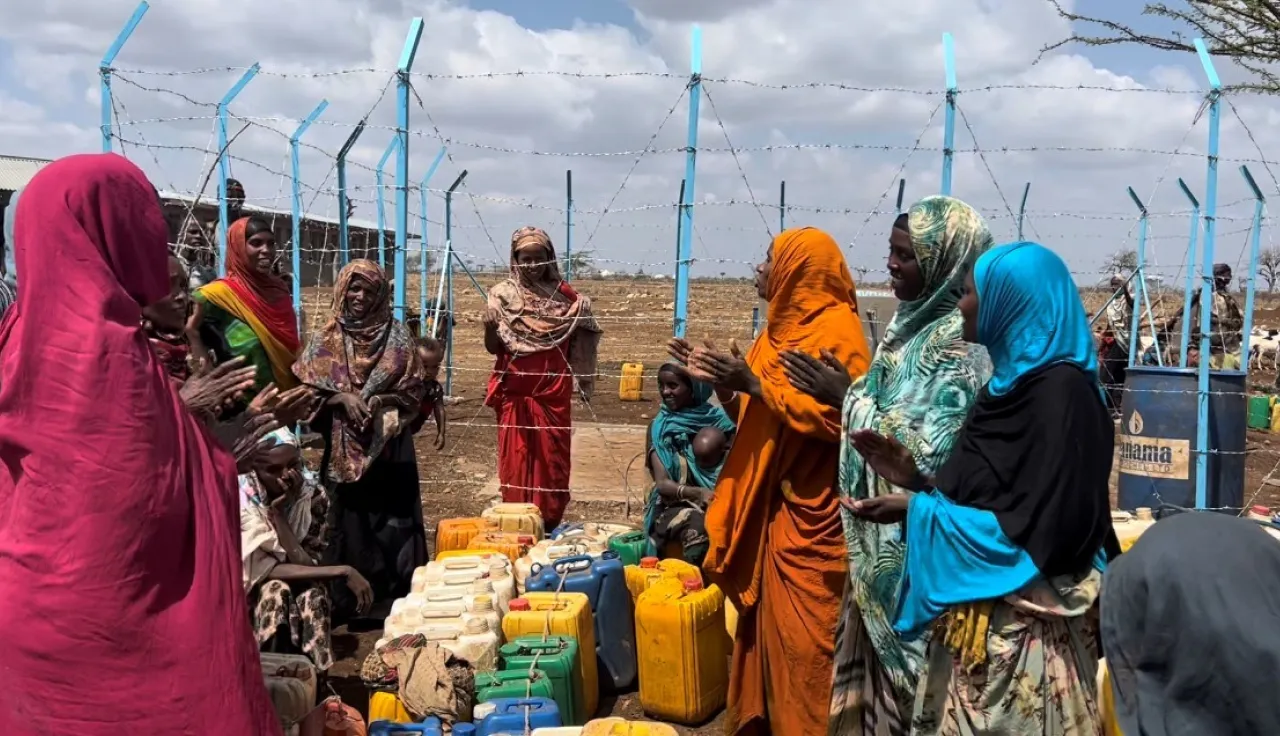
A lack of running water was a daily reality for thousands of people in Roggee, a small town in Ethiopia`s Oromia region. For years, misery spread in the township as people struggled every day for a single bucket of water. That is, until the International Committee of the Red Cross (ICRC) provided clean water through a solar-powered water system that has dramatically changed the daily life of these communities, who are suffering from the consequences of ethnic conflict and drought.
At a rainwater collection pond in Burka Jenate, some 20 kilometers from Roggee, queues of women and children gather and fill up various small containers and jerrycans with dirty water. The water is brown and unsuitable for drinking and increases the risk of giardia infections.
"We drink and wash with it. We have no choice," said Makia as she fills up her containers. "Everyone in my family used to be sick throughout the year. But we have adapted."
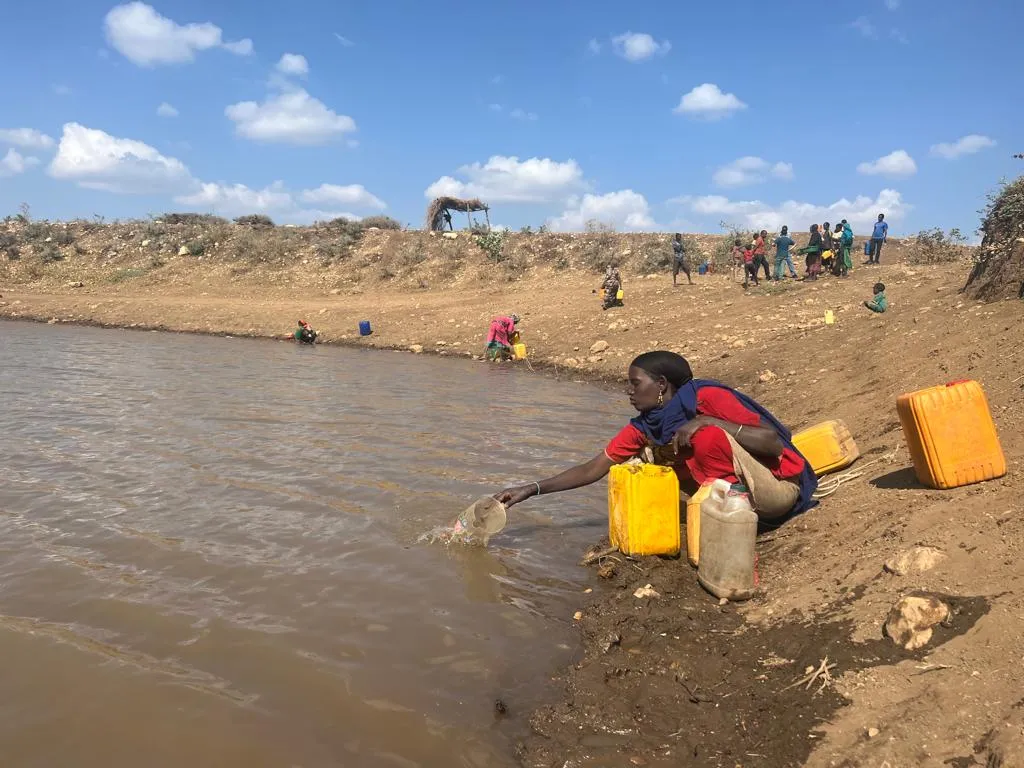
The people of Roggee in Oromia, Ethiopia, relied on faraway stagnant rainwater collection points for water to drink, cook and wash with.
Animals can be seen drinking from the same water source as people. At another pond in Kara, Zeynebe Oumer pushes aside a sheath of algae to get water. She said they were lucky to have this stagnant water because the prolonged drought had dried up everything. The water settled at this pond four months ago, the last time it rained in the area - causing floods.
"I left home after the Muslim prayer at 5am and walked several hours to fetch this water," said Zeynebe, a mother of six. She was worried that if significant rains do not fall in the coming months, these rainwater collection ponds could run dry.
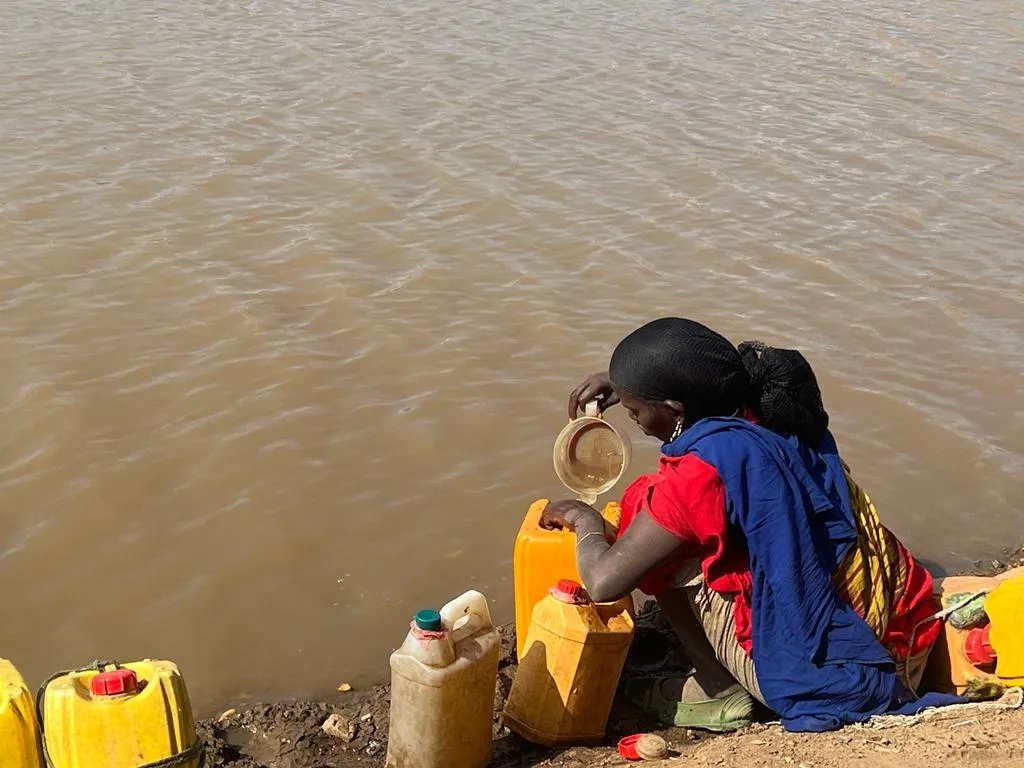
Before the ICRC installed a solar-powered water system in Roggee, Makia walked over 20 kilometers to get water which was unsuitable for drinking.
The severe water shortage in Roggee and surrounding areas has been a humanitarian and health disaster. People relied on occasional supplies from water trucking by local authorities and aid agencies. These life-saving but short-term interventions did not provide enough water.
"Many children fell sick from water borne diseases like diarrhea and giardia infections," said Dejene Tujo, head of the water bureau for Meyumuluke district that manages water resources in Roggee and other towns. He explained that people displaced by conflict in the Somali region swelled the population of Roggee and made access to safe water even more difficult. Livestock on which the livelihoods of these pastoral communities depend have died because of lack of water and pasture.
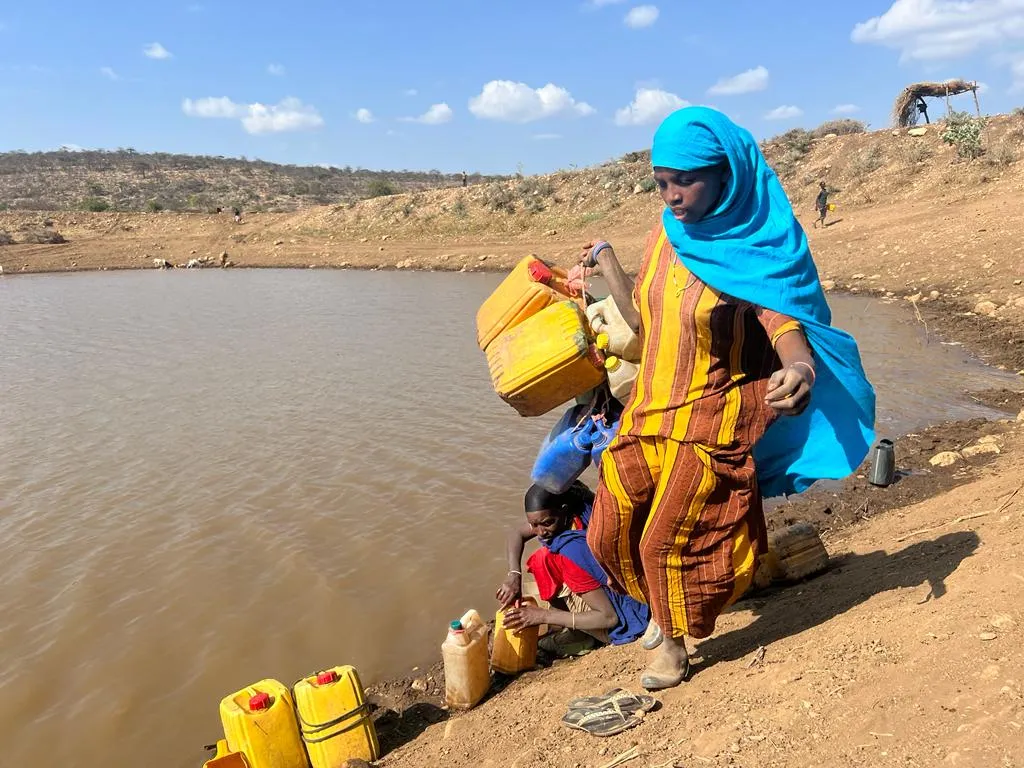
Like other communities in Ethiopia that face the double-impact of conflict and drought, the crisis here forced people into a desperate search for water in areas where they had to share it with animals.
In response to this water crisis, the ICRC installed a solar-powered water system in Roggee which has begun distributing clean and safe water to the communities. The ICRC team in Ethiopia dug 282 meters deep well and installed submersible pumps powered by 204 solar panels and a high-power back-up generator. This water source is connected by a seven kilometers pipeline to two water tanks with a capacity of 30,000 liters each. Another two-kilometer pipeline distributes the water to the Roggee Health Center, seven community water points, three cattle troughs and one truck filling station.
"We have installed the water points in strategic locations that currently distribute potable water daily to these people who desperately needed it. They don't have to share the same water source with animals anymore. There are dedicated water points for livestock," explained Syed Wafadar Hussain, one of ICRC's water engineers working on the project.
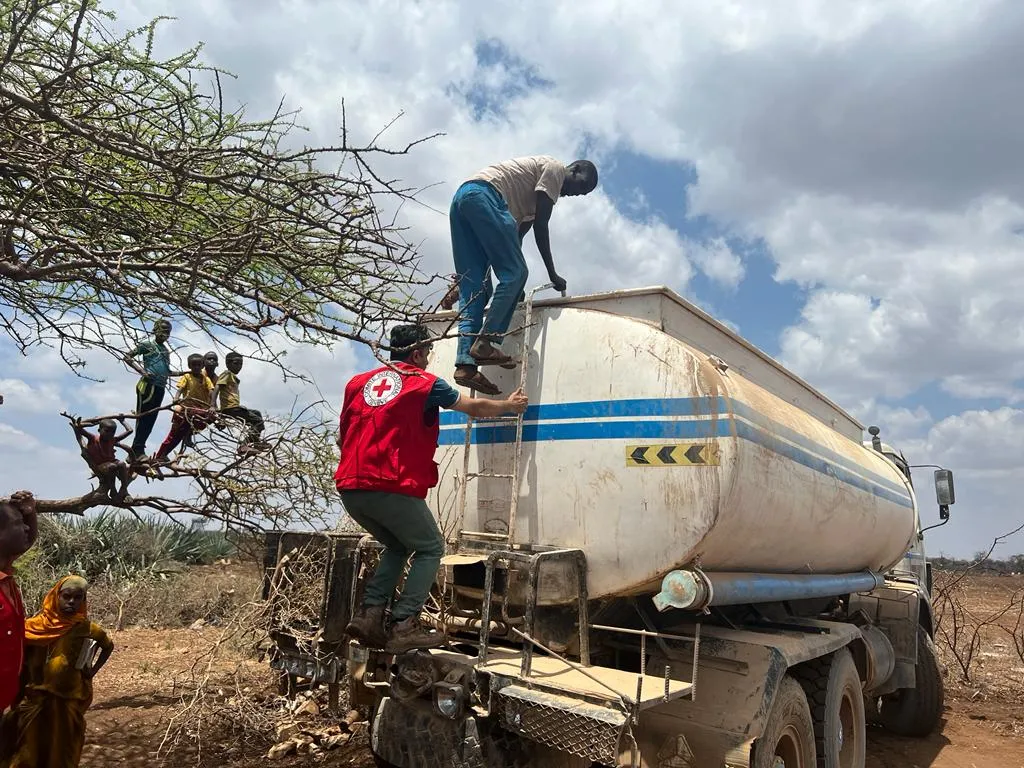
From a filling station, a driver with a pick-up truck supplies clean water to far-off communities, ensuring that everyone benefits from the water system.
To ensure that people in far-off communities also get clean and safe water - particularly the sick and elderly who are unable to carry water containers or walk long distances - the ICRC and local authorities have engaged a driver with a pick-up truck to supply in these areas.
"I feel so delighted for a moment like this," said 70-year-old Hindia Adem, while filling her jerrycan from a tap at one of the water points provided by the ICRC. "We had no water. At my age I walked 20 kilometers to fetch dirty water. We left for water at 2am and returned at 1pm. Our children were exhausted. Now we are free from all that burden."
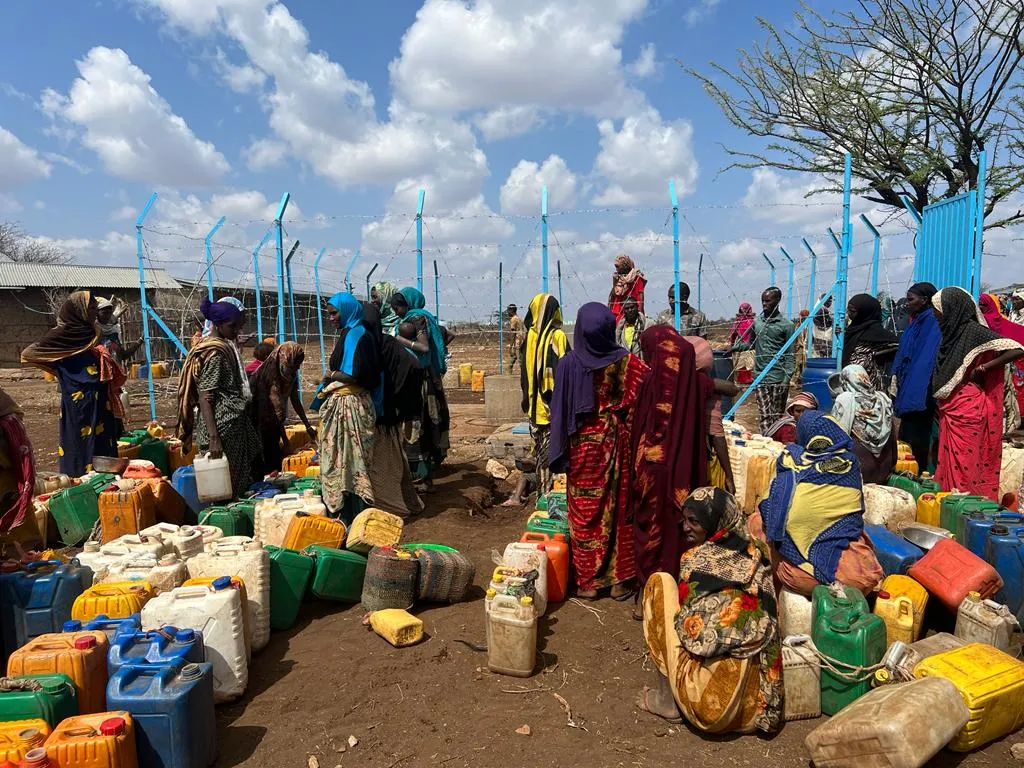
The queues of women and children gathering to fill up their containers from the taps provided by the ICRC show what clean water means to the communities in Roggee.
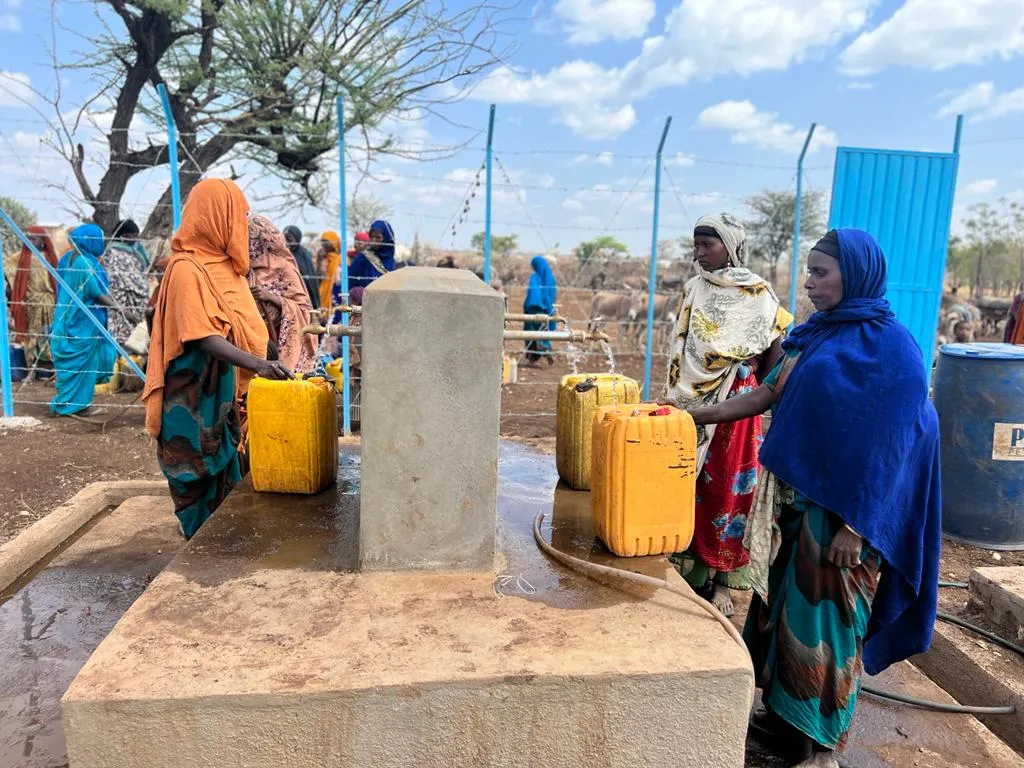
Daily life in Roggee has changed with the arrival of clean water as communities now get it from various water points installed by the ICRC
Ibrahim Muhammed, a cattle herder who brought his over 80 cows, camels and goats to drink water also narrated that: "I usually trekked six hours with my livestock to find water for them to drink. Ten of my cows, two camels and 20 goats died because of water scarcity. Now they can survive. It took me just about 30 minutes to bring them here."
The ICRC acting head of sub-delegation in Jigjiga, Fowziya Kasim, handed over this solar-powered water system to the community on 15 March 2023, in the presence of local government authorities and officials from the Ethiopian Red Cross Society. The water system is serving over 35,000 people and 50,000 livestock in Roggee and the surrounding areas, including in neighboring Somali region.
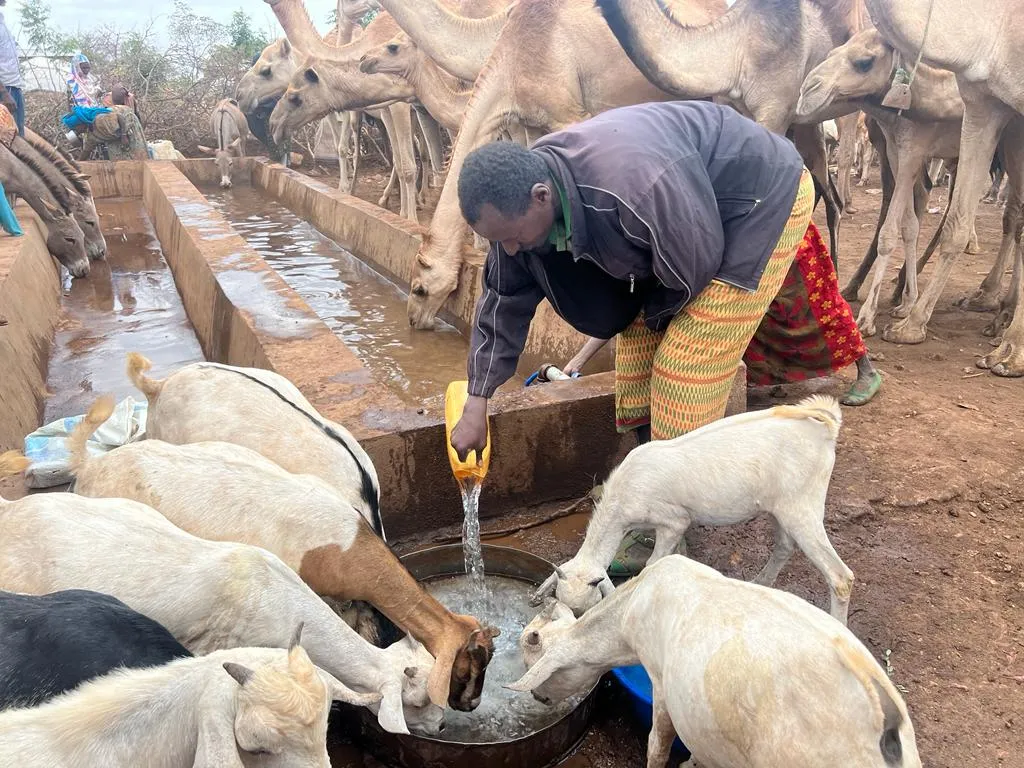
Cattle troughs built by the ICRC provide enough water for animals to drink and herders no longer face desperate choices to access water for their livestock.
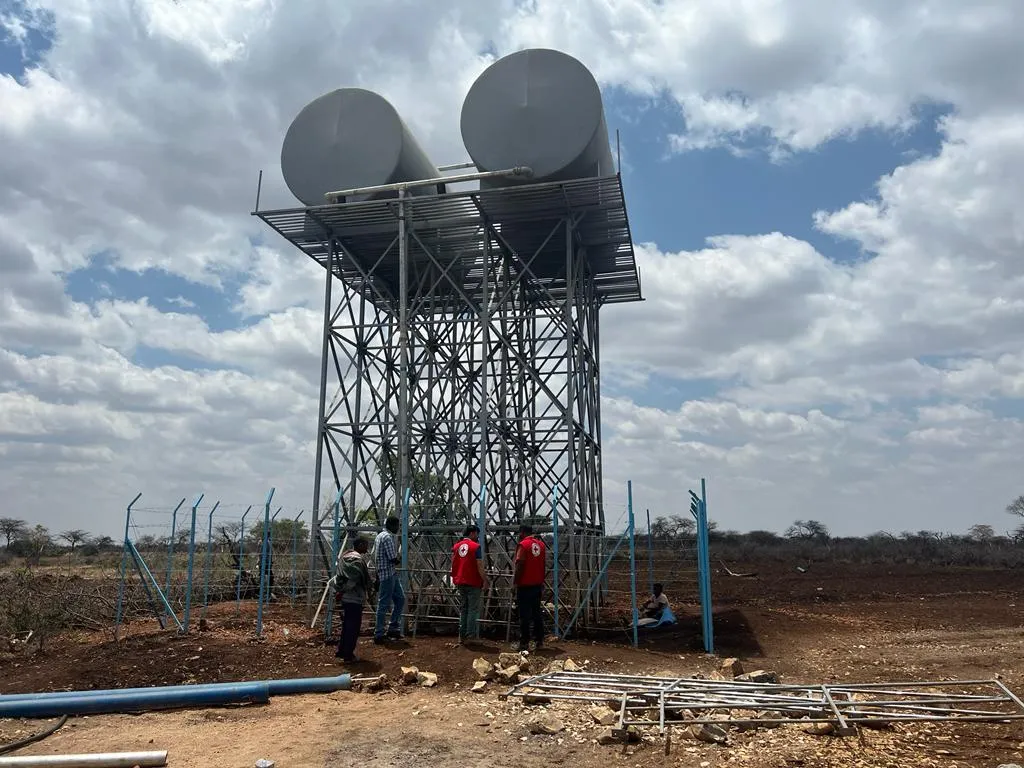
Two water tanks with a capacity of 30,000 liters each store enough water to serve the community daily.



